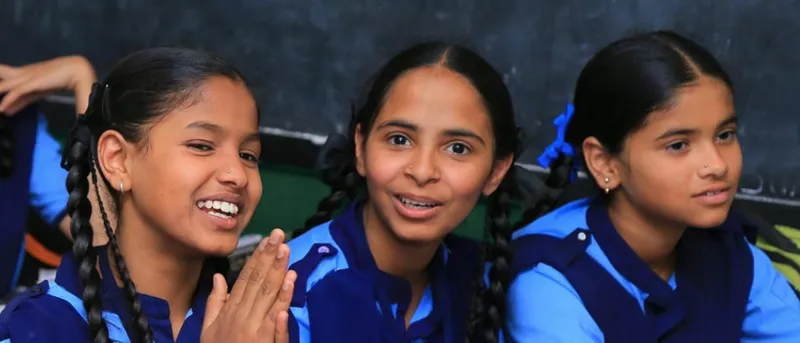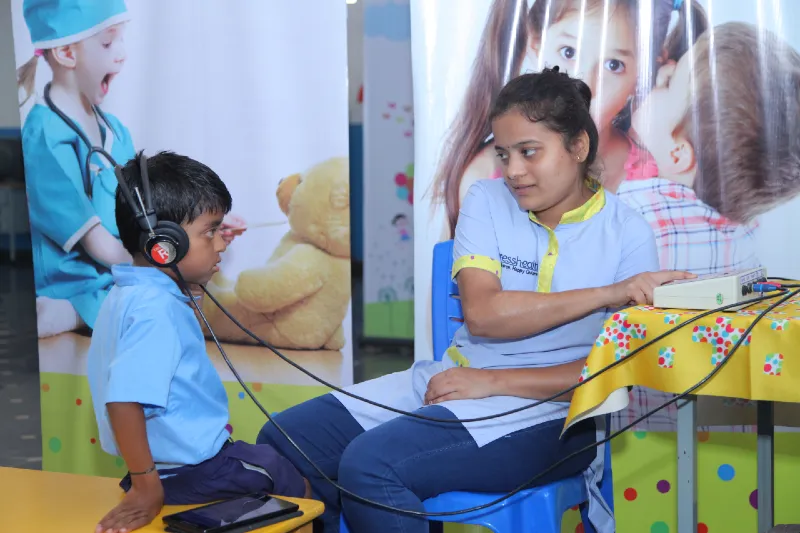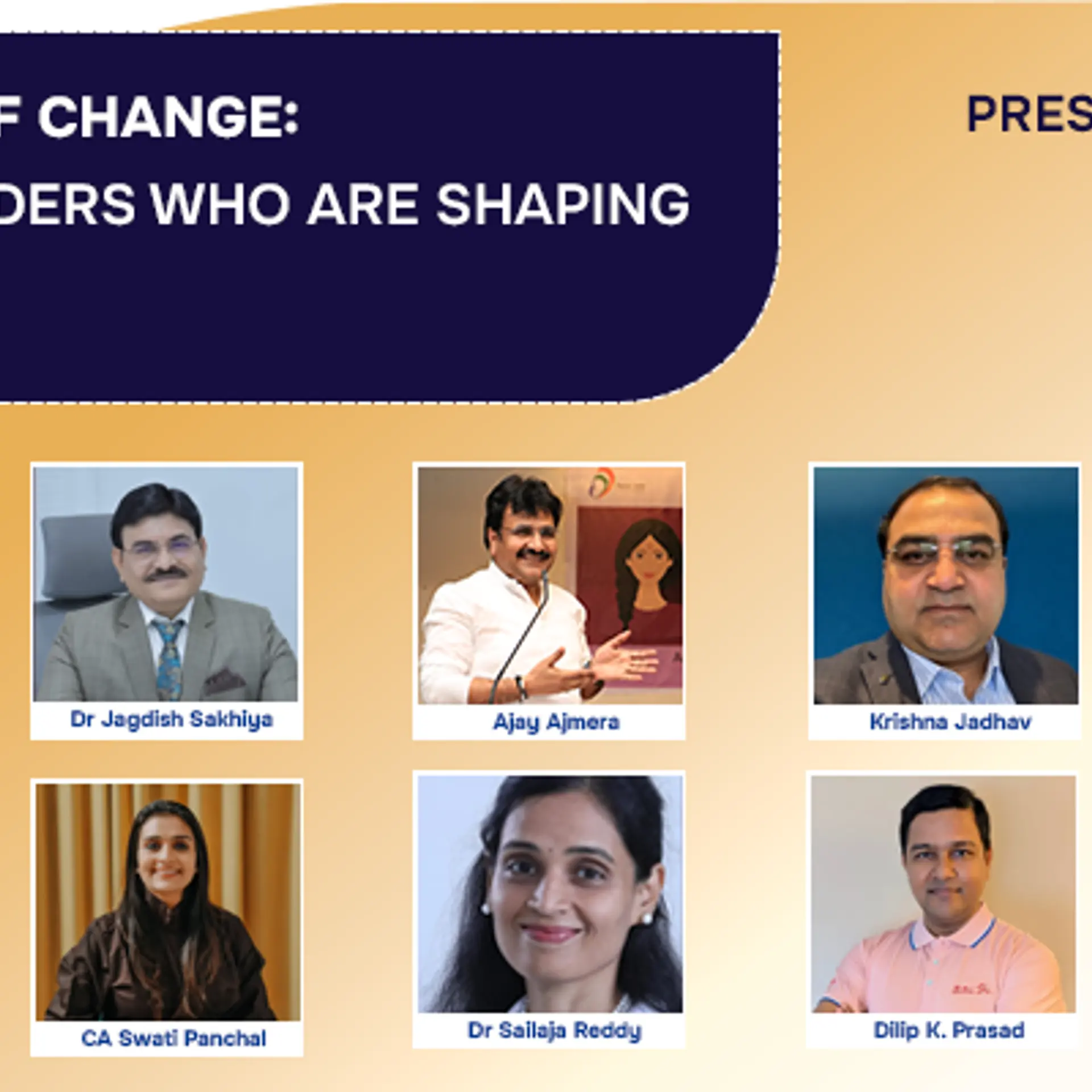Beyond the Business: How students in government and tribal schools are benefitting from CSR educational and health initiatives
SocialStory’s Beyond the Business series examines the CSR initiatives that companies are undertaking to help underprivileged communities. This week, we look at some of the projects initiated by the Embassy Group.
Sufiya Banu looks like a typical Indian school girl, with her hair tightly braided and coiled on either side of her face. Her uniform is neatly pressed and pinned in place. The minute she starts speaking, however, the self-assured and confident tone immediately sets her apart from her peers.
She attributes the personality development to the Life Skills programme being conducted at the Government School in Bengaluru’s Potter Town, where she has learnt to assert herself and not be afraid of being heard.
“It’s very different from my old school where I had never even heard of a Life Skills programme. The first thing Sir (Life Skills trainer) taught us was that we had to be different from how we were in primary school. We used to be scared of coming forward and voicing an opinion,” she tells SocialStory.
The children were told that as they grew, so would their confidence. “I have changed considerably since then. I used to think that boys should be in front and girls at the back. But now I know there is no difference between us, and there is no reason girls should not come to the front,” smiles Sufiya.

Students have been benefitting from the educational initiatives and other skills programmes initiated by the Government of Karnataka in partnership with private players
Education for all
The Life Skills programme is part of an innovative learning support initiative jointly conducted via an MoU between the Karnataka government and private players — including Tata Technologies, The British Council, and the Embassy Group — that blends special learning in English, Math through Computers, Life Skills, and Sports at several government schools.
The School Outreach programme aims to empower students in 246 government and tribal
schools with the skills for self-development and future employability through holistic health and
innovative learning programmes. The programme has been created along with the Embassy Group to provide the all-around improvement of government schools in Bengaluru through educational resources, infrastructural support, and health initiatives for 20 government schools. As part of the MoU, 24 government schools have been renovated.
Through various community outreach initiatives, over 11,000 students in 86 government and tribal schools in Karnataka have benefitted from various educational and infrastructure outreach programmes. With a focus on sustainability, five government schools have been equipped with solar power, with four more in the pipeline by next year.
Speaking about the focus on education, Jitu Virwani, Chairman and Managing Director of Embassy Group, says, “I have always been a proponent that a robust public education system is vital to empowering the next generation and strengthening our nation. We are committed to creating a nurturing learning environment, conducive to unleashing the potential of our children.”
“I saw the opportunity to galvanise children from all backgrounds by partnering with the Education Department to provide government schools located around our properties with the resources their students need to succeed. We decided to adopt certain government schools, help the state by infusing extra teachers, conduct educational programmes, and improve infrastructure and maintenance. We have been able to get more students to return to school, thereby increasing attendance,” he adds.
Pandemic outreach initiatives
In 2019-20, a consortium of corporate partners came together to benefit 26,278 students across over 135 government schools in Bengaluru, Pune, Hosur, Chennai, Mumbai, and Noida. Of the 26,278 students that were screened for common health issues, 6,178 students were treated. Over 19,800 preventative health kits were distributed and several hours of health awareness was conducted in schools.
In partnership with Cerner, a US-based health information technology and electronic health record (EHR) software manufacturer, free health check-ups were provided to more than 4,000 students in 14 government schools. To curb the dropout rate owing to recurring health issues, a seven-step holistic health and hygiene programme was initiated that includes spreading awareness, daily maintenance, and clean drinking water, along with comprehensive health screenings and medical interventions.

Regular healthcare checkups have reduced recurring health issues among students resulting in a reduced dropout rate
During the pandemic, this initiative was further strengthened with support from Swiss Re Foundation and Cognizant to cover over 45,000 students in Bengaluru, Mumbai, Pune, Noida, Chennai, and Hosur.
In addition to providing health support, Embassy Group has been working with NGO partners to ensure that students don’t lose touch with their schooling, and providing their families (many of whom are migrant workers and daily wage earners) with essentials such as dry rations. Over 3.77 lakh meals have been distributed to date. Health kits containing reusable masks, soap, handwash, shampoo, laundry soap, a toothbrush, toothpaste, a tongue cleaner, nail clippers, a comb, and disinfectants have been distributed among 28,300 government school students across India.
K S Vinoda, Headmistress of Government Higher Primary School, Vasanthnagar, Bengaluru said, “Due to the COVID-19 pandemic, schools could not operate in their usual manner. With Vidyagama (a continuous learning programme for school children) classes about to start, the Embassy Group has provided us with the necessary sanitisers and face shields, keeping the safety of students and teachers in mind. They also facilitated the deep cleaning and sanitisation of the school before our students returned for their classes.”
During Karnataka’s SSLC examinations, students were provided with dispensers, protective gloves and temperature gauges, along with sanitisation of the exam halls and school grounds.
Jitu Virwani says, “Conducting our CSR activities during COVID-19 has proven to be extremely challenging; however, it has proven to be an opportunity for corporates like us to reaffirm our mission to give back to the communities around us. We were able to leverage our existing expertise and networks to mobilise various COVID-19 relief initiatives.”
The Group’s “together we can do more” campaign has led to the creation of Corporate Connect Programme, which aims to bring together 200+ corporate occupiers of their business parks with a shared vision for less privileged communities. Till date, they have partnered with 22 corporates for 49 projects in the spaces of educational infrastructure, public infrastructure, health and COVID-19 relief.
Edited by Kanishk Singh








